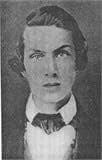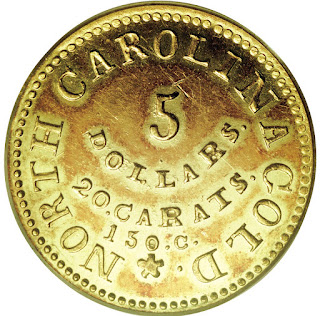The Drowning of A.N.W. Belk
(NOTE: Louise Pettus was a South Carolina researcher and author. Her archives are stored at Winthrop University. This story takes place in the Waxhaws, a Carolina border community.)
Abel Nelson Washington Belk (pictured) was the father of the Belk brothers, founders of Belk Department Store.
Lousie Pettus wrote the following true story. It reminds me of Ambrose Bierce's "An Occurrence at Owl Creek Bridge."
"More than 80 years after the event, William Henry Belk could still recall his father and several black men hitching up the horses to wagons loaded with household goods. William Henry Belk was only 2 years and 8 months old. He was left behind with his brothers--one 4 years old and a baby of 7 months--and his mother, Sarah Walkup Belk.
"In 1950, LeGette Blythe set down William Henry's memory of that day in question. 'My father had heard that old Sherman (i.e., General William Tecumseh Sherman) was heading our way on his march towards Charlotte. Abel had what in those days they called weak lungs and hadn't been strong enough to join the Confederate army.
"'He figured that if the Yankees came along by our place and caught him at home, they'd probably hang him and take all the horses and anything else they wanted, and burn down the house...'
"For Abel Nelson Washington Belk, the decision to leave his home on the south side of Twelve Mile Creek in Lancaster County proved to be fatal. The Yankees didn't come that far north but turned to the east when they left the town of Lancaster.
"Abel Belk had headed for his father's place on Gills Creek some 6 or 7 miles east of Lancaster where his father owned a small gold mine.
"William Henry Belk said that the Yankees 'caught a fellow down that way who figured he'd save his own hide and get in the good graces by turning up my grandfather, old man Tom Belk. This scoundrel told them that my grandfather had barrels of gold hid out at his mine and said that if they caught him, they could make him tell where the gold was.
"It was later revealed that the troops found Abel Belk instead of his father and when they tried to force Abel to tell him where the non-existent barrels of gold were hidden, Belk could only say that he did not know. He was taken to the creek and his head pushed under the water time and again in an attempt to make him talk. Abel Belk, already sick with fever, collapsed and drowned.
"On March 8, 1865, Herron Belk, brother of the drowned man, wrote Sarah Belk, the widow, that 'there was a certain person buried about one and a half miles below here, in Graham's field, who I suppose is Abel.' One of the blacks who had accompanied Abel was able to identify Abel's dead mule near the creek.
"Herron Belk asked Sarah Belk to bring horses (the Union forces had taken every horse in the community) and a wagon to his house so that they could move the body to Shiloh Church.
"After seeing her husband buried, Sarah Belk returned home to raise three little boys. A college graduate, she would be able to give her sons the rudiments of an education. It would be far more difficult to operate a farm in the hard postwar years.
"With Alexander, Ely, Ben, Amanda, and Moriah (former slaves), now free, she labored and finally paid off the mortgage on the farm in 1872.
"In 1873, Sarah Belk married John Simpson, a man she had hired as an overseer. The family moved to Monroe, N. C.
"It was in Monroe that William Henry Belk, at the age of 14, went to work for Benjamin Dawson Heath in a dry-goods store. He proved to be indispensable to Heath who frequently left Belk in charge while he pursued other business interests (one of his businesses was the Bank of Charlotte which evolved into the present NCNB banking chain.)
"When he was 26, William Henry Belk opened the first store of what would become Belk Brothers, a large chain of department stores now simply known as Belk."
NOTE: Gold was first discovered in South Carolina in 1802. The Carolinas and Georgia had enough gold deposits that an assayer named Bechtler began minting gold coins (see picture). Today, these coins are rare and collectible.





No comments:
Post a Comment